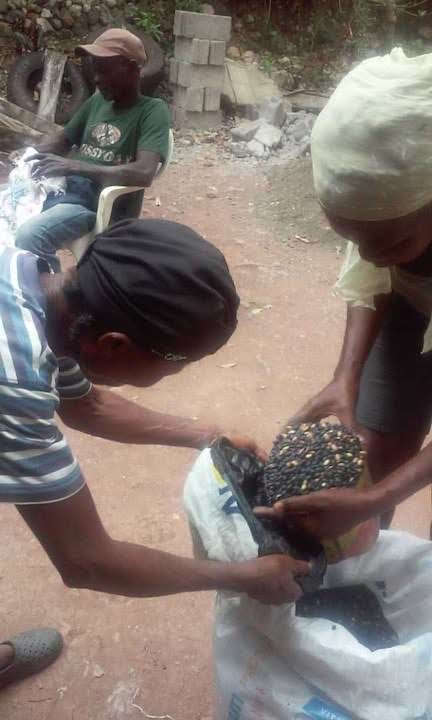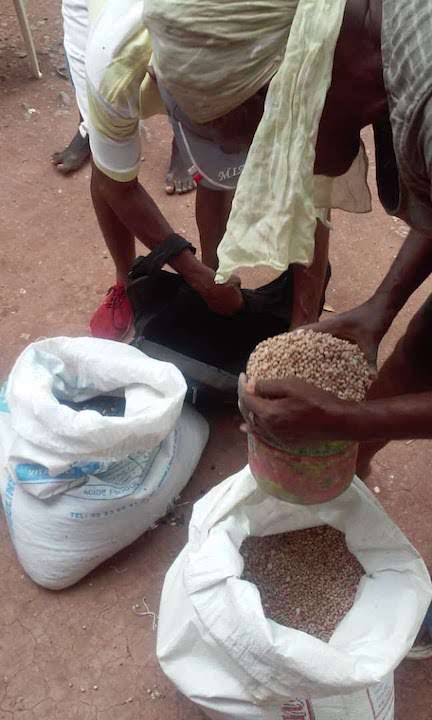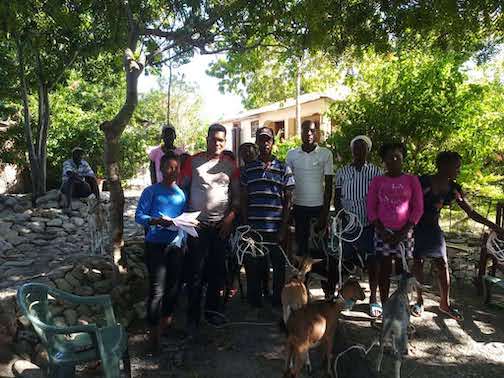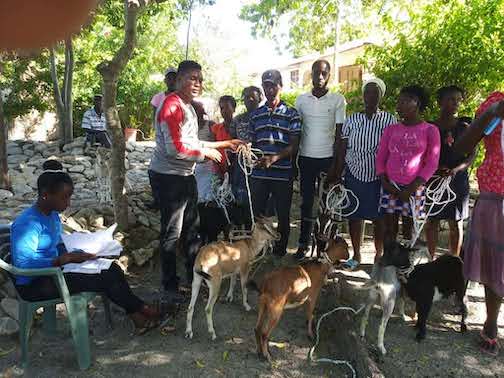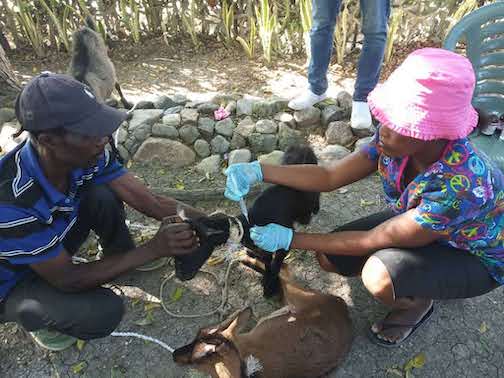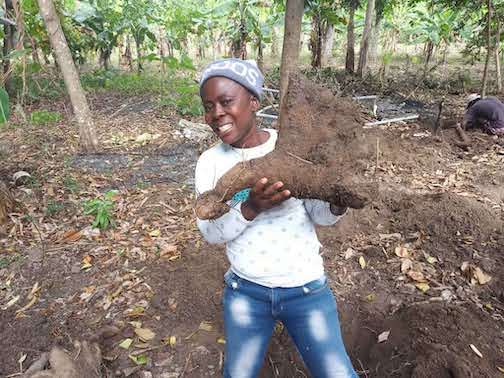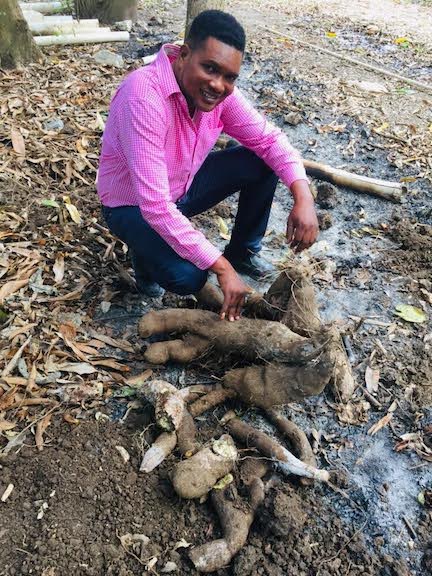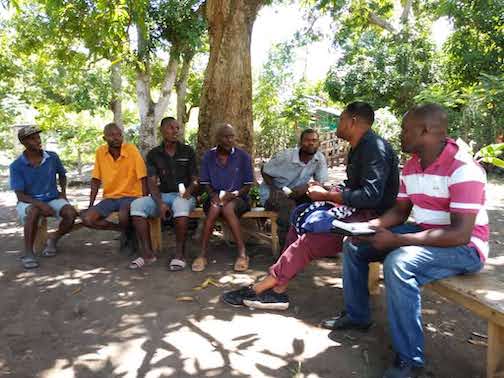
The Quixote Center supports the work of the Jean Marie Vinent Formation Center located in Grepen, just outside of Gros Morne, Haiti. Most know of our work in relation to reforestation efforts which have led to 2 million trees planted in the area since 1999. Accompanying the tree planting, however, is work with local farmers. The agronomy team at the Grepen center, travels throughout the region, working side by side with the parish’s Karitas network, and grassroots organizations such as the Peasant Movement of Gros Morne to identify problems, and work with small farmers to find solutions. We periodically report on some of this activity.
Seed Bank
The Grepen center has organized and supports a seed bank for local farmers. The seed bank allows for bulk purchases of seeds, often “off-season” when seeds are cheaper. Farmers are able to purchase the seeds at a discounted rate and deposit them with the seed bank until needed. During the spring we launched an emergency appeal to raise funds for the seed bank to ensure that there were plenty of supplies available to farmers for the summer planting season. We also received additional funds in mid-summer from Alternative Gifts International to further support the seed bank. The following is a report from the agronomy team on use of the funds:
From August until December, local planters usually plant a lot of beans, especially black beans, and vegetables in their gardens. This year the situation facing the planters was complicated. The year began with the locked country political debacle, and then descended into the coronavirus crisis. Ongoing political instability has increased market prices, and a drought during the last spring planting season, which is the largest of the year, caused a lot of problems. The sun destroyed many gardens without the relief of periodic rain.
All of these things put the farmers in a difficult economic situation. This created difficulties for them to be able to plant on time in the spring, and farming is their principal economic activity. With the support of Quixote Center, our seed bank at Grepen was able to help the farmers respond to these difficulties and move forward with their gardens. We provided seeds and technical support for the farmers in order to save the spring planting season and change their lives for the better.
For this planting campaign, we were able to support 61 farmers in the zones that were ready to plant. These farmers all have gardens near Twa Rivye, which we consider to be the boundary that separates our diverse agricultural zones. Of the seeds that we distributed to the farmers, they will have to return a certain quantity to the seed bank after they harvest their crop. This is how we are always going to have good quality seeds available after each harvest.
Goat Program and mobile veterinary clinic
Three years ago the agronomy team launched a program to distribute goats. The program involved first doing training with “cohorts” of roughly 10 families, who would then receive a female goat for each family and one billy goat for the cohort. If the female goat has a kid, the family agrees to pass the kid on to a new family. Maintaining the health of the goats is an important part of the program. Integrated into the program is a mobile vet clinic, run by Roseline. She visits the cohorts on a regular basis. Here the clinic is visiting Perou.
Yam harvest in Grepen
Food insecurity is obviously a huge issue for all of Haiti, and addressing this is the primary goal of the program at the Grepen center. Toward this end, the agronomy team works with local farmers on techniques for growing cassava, yams, and, in the past several years, planting sweet potatoes that are resistant to weevils (which have destroyed many harvests in recent years). Below Teligene and Songé show off some healthy yams grown in gardens in the community of Grepen.

